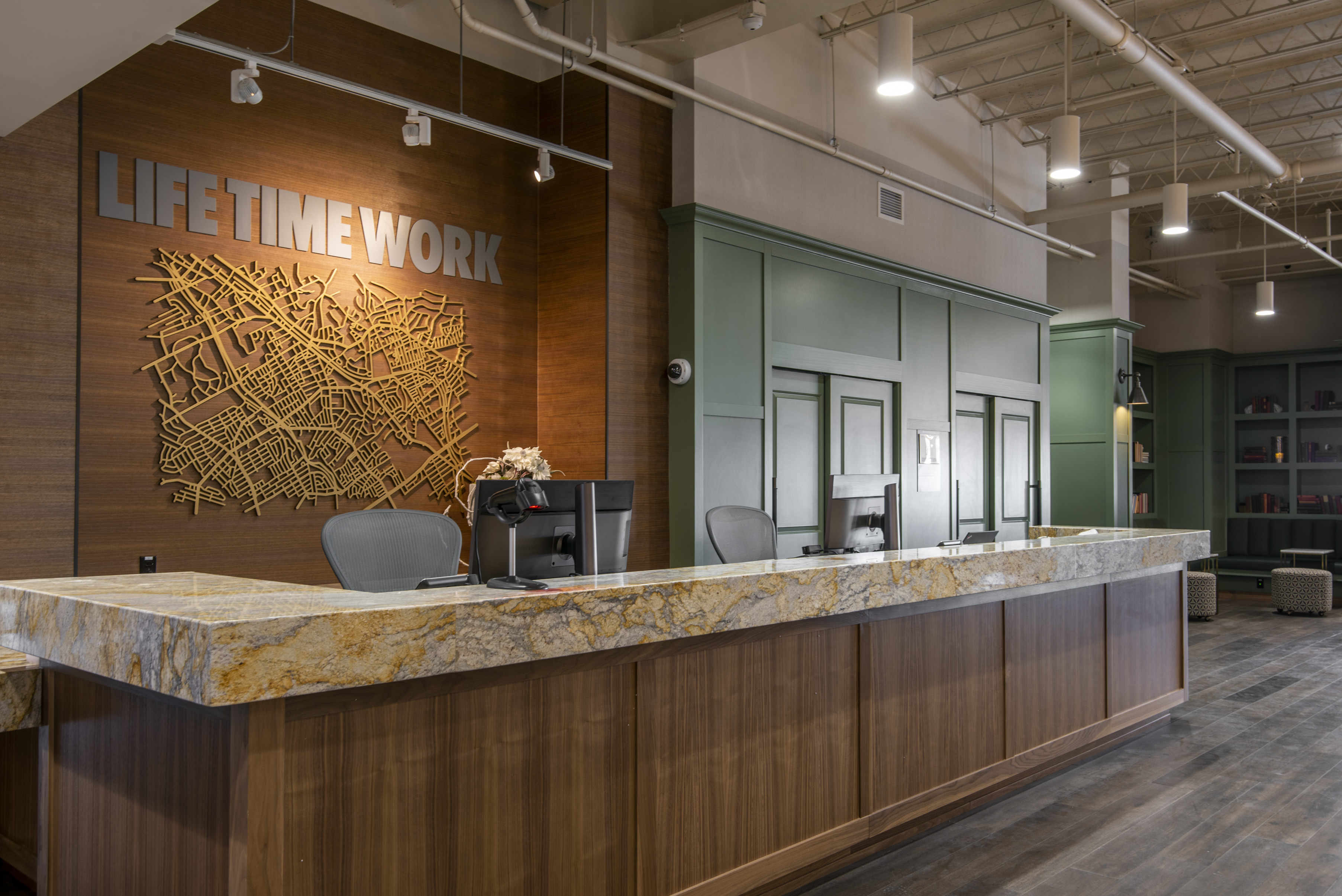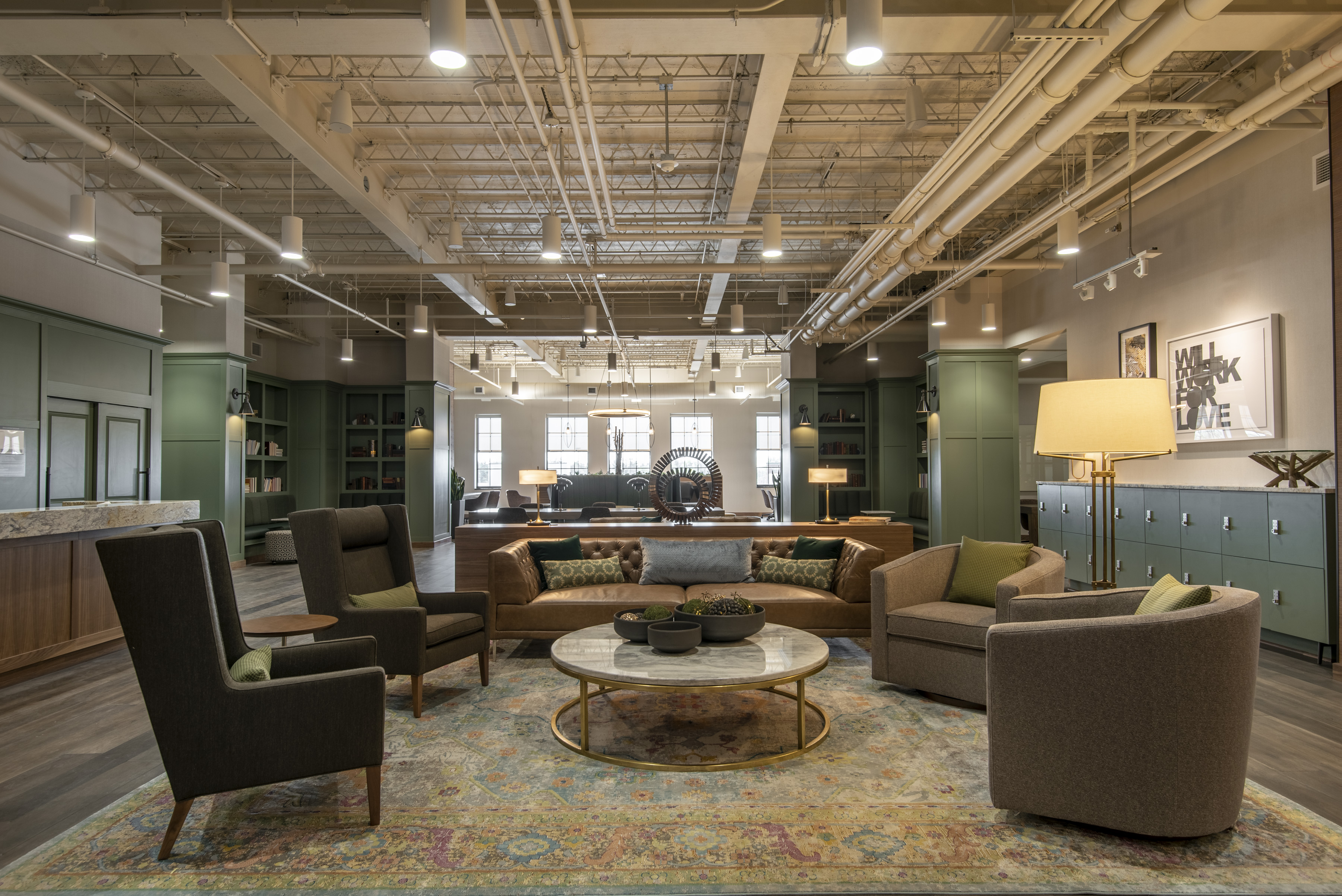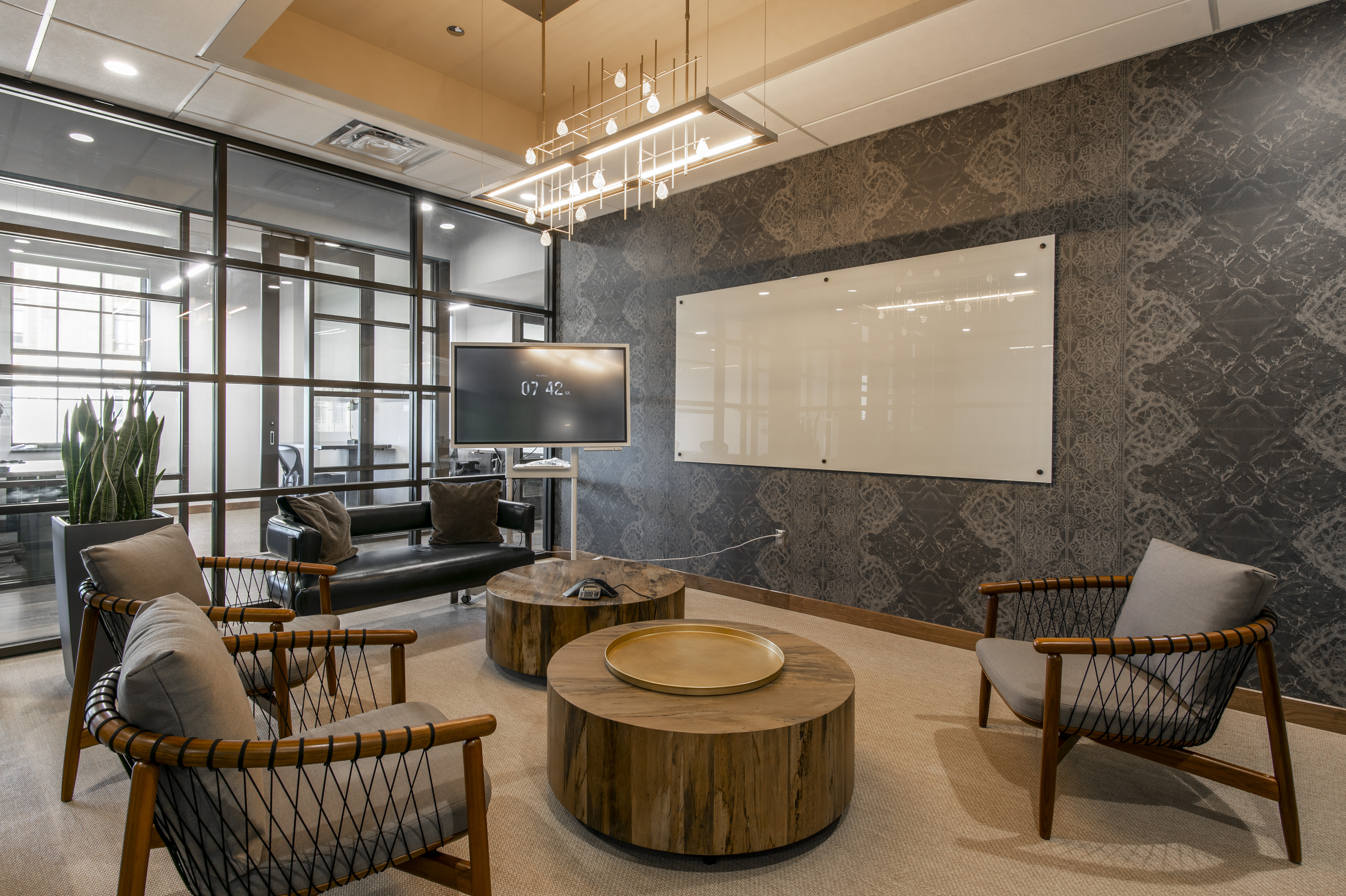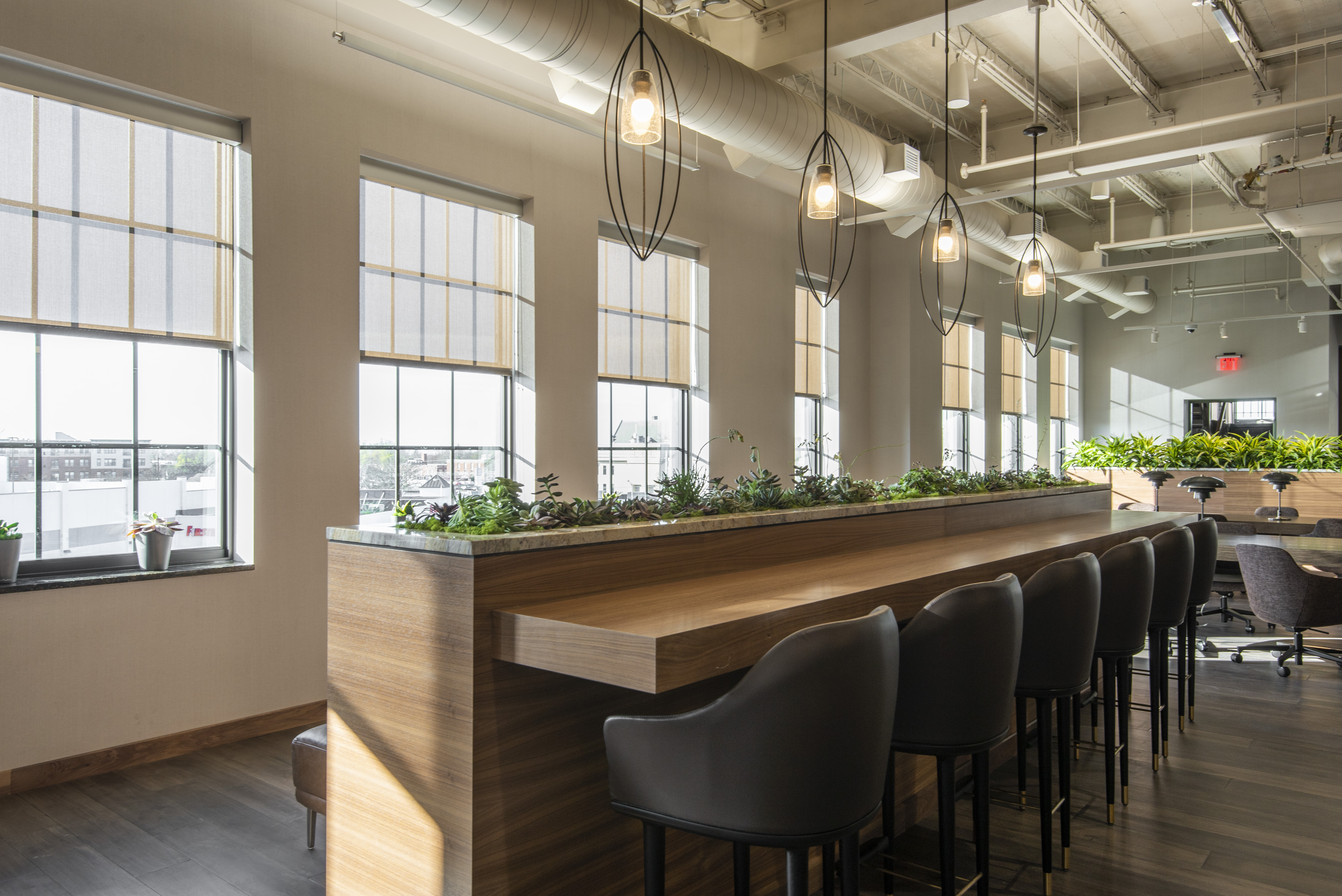Founded in 1990 by CEO Bahram Akradi, Minnesota-based Life Time used to be known as a premier health club that operated large gyms mainly in affluent suburbs in Midwestern and Southern states. Its success was memorialized in 2015 when two leading private equity firms, Leonard Green & Partners and TPG Capital, led a $4-billion deal to take the company private. But rather than retire or move on to new challenges, Akradi chose to remain in his leadership post and continue to build the Life Time brand.
Just a few years later, Life Time, which has always been profitable — even in the depths of the Great Recession — is enjoying double-digit top-line growth, which should enable it to top $2 billion in revenues next year. With the median household income of its members topping $100,000 throughout its 139 clubs, Life Time has sought to build a central relationship with its discriminating clientele by adding extensive health, wellness, spa and sports offerings.
For the company’s next act, Akradi plans to make a big leap into co-working and residential living, and he’s spending considerable time with shopping mall landlords as they look to replace struggling anchor stores with vibrant new tenants. A one-time immigrant who has overcome his fair share of adversity, Akradi understands that he will encounter formidable competitors as he adds new services that are not within the typical scope of a company with fitness roots. But Akradi doesn’t have time to dwell on his boundary-busting ways. Instead, he’d rather talk to you about his Four Seasons-esque vision for his company and his desire to serve a customer’s mind, body and soul at play, at work and at home.
Gregg Schoenberg: It’s great to see you, Bahram. Let me kick things off by asking you how you found your way here from Iran.
Bahram Akradi: I came here one year before the revolution [1978] to get an engineering degree and go back. Of course, a year later, there was nothing to go back to.
GS: Now, 40 years later, Life Time is a great American brand. But for those not familiar with it, what’s the elevator pitch?
BA: We’re thinking about your health, your nutrition, your spiritual wellness, anything that touches your life. With that in mind, we wanted to focus on the member point of view, to create something where the member felt like our club was designed with them in mind.

GS: Two things are notable about Life Time relative to a lot of other health and wellness-related companies. One is that you have more clubs in the suburbs than in the cities, and two, you have more clubs in America’s heartland versus the coasts. What was the thesis? Did you say, “Let Equinox and others duke it out in New York, D.C. and California. Let’s be aggressive in Minnesota, Texas and Indiana”?
BA: That’s a great question. Actually, I left the company that I had sold to Bally’s in 1988 to build new clubs. The first target market for me was San Francisco. In fact, I spent three years of my life traveling back and forth to San Francisco trying to secure sites and financing. For one reason or another, things just would not come together. So, finally, I was able to start a tiny little club that had been vandalized and closed—
GS: —in Minnesota.
BA: Yes, in Minnesota. But the idea wasn’t originally to be a Midwestern company, and then kind of accidentally get to the coasts. We had always planned to be a national company. The benefit of starting on the coasts is that people know your brand. Your brand gets built, and then you can go everywhere.
GS: But there are offsetting benefits to starting in the Midwest, no?
BA: Starting in the Midwest is tougher. The economies and market can be less robust. Plus, you can do magical things and nobody talks about it. But the benefit is that today, we go to the East Coast, we go to the West Coast, we go to Miami, to all of these hot markets, and we get to build our best product in the hottest markets.
This isn’t a noble idea. It’s been done for hundreds of years in other countries where they have had massive populations.
GS: Actually, I hadn’t heard of Life Time because of that best product. Instead, I have this friend who lives in the suburbs of Philadelphia, who one day told me that he was working at this terrific co-working facility launched by Life Time. So with that backstory, let me ask you this loaded question: Is it easier to start a co-working facility when you already have health clubs, or is it easier to start health clubs when you’re already in the co-working business?
BA: Co-working is a substantially less complicated business to operate than a health club. We both rent space. We both have to fit that space to the needs of the customer, and then we have to provide the programs and everything else. But the health club business is significantly more work than the co-working business.
GS: It sounds like you view them in similar fashion.
BA: Like the club business, we think of co-working as a subscription business. I see it as a continuation of what I wanted to do at the beginning: make things more convenient for my customers. Some of those people would like to work in an environment where they can go downstairs and get their massage or workout. For us, tying it together is a completely natural move.
GS: In five years’ time, how many co-working facilities would you like to have?
BA: I’d say 50 to 60.
GS: Wow. So, a good part of your business?
BA: Yes, but our clubs are so large that even at 50, they’re not equal to 50 of our clubs in terms of revenue. But we think we have a great approach to co-working at the very high end.

GS: What does very high-end mean to you?
BA: The one company we admire and regularly give accolades to at Life Time is Four Seasons. I love their execution. I love their consistency. I love the way each employee is certified and trained to give you the Four Seasons brand of service. We constantly work on delivering that at Life Time, and that extends to Life Time Work.
GS: You are the largest private operator of swimming pools in the country, right?
BA: That’s correct.
GS: So, in the future, if I’m choosing between Life Time Work and WeWork or another co-working brand, one benefit of your offering is that there’s is a decent shot that you’ll be able to go for a swim in the middle of your workday, right?
BA: That’s right.
GS: That is something that, I would imagine, is not so easy for anybody else, including WeWork, to replicate.
But it’s not as easy as you may think to deliver the feeling of our club into one of those boxes.
BA: I will tell you this: I think WeWork is a phenomenal entity. They have to get credit for what they have done. Co-working existed long before WeWork showed up. They made it the real thing. They put it on the map, and they have created enough size and momentum for other people to step in.
GS: To that point, as you know, WeWork has made a modest foray into residential living. Is that also on your roadmap?
BA: It’s called Life Time Living.
GS: Would that residential offering be integrated alongside the clubs and the co-working facilities?
BA: Yes, and the concept is to bring Life Time Work, Life Time Living, Life Time Resort and sports all together under one roof, and create basically the Life Time Village. This Life Time Village is naturally and intuitively environmentally friendly because you have a car, but you don’t have to use your car for as many trips as you do if you live in disjointed places. This isn’t a noble idea. It’s been done for hundreds of years in other countries where they have had massive populations.
GS: A modern-day town square of sorts.
BA: Exactly.

GS: On that note, I watched the videos associated with your Oklahoma City opening. A few of the people featured said, “I can cancel my country club membership” or, “I can cancel my golf club membership.” That resonated with me, because I’ve always felt like when I’m in an elegant golf club, some guy in a Kelly green blazer is going to tap me on the shoulder and ask me to leave. Do you see Life Time as sort of the alt golf club?
BA: Yes, except I think there’s a place for the country club with golf, because there are some people who want golf.
GS: Sure.
BA: But there are also people like you who don’t want golf. I don’t golf, but my nephew golfs. Compared to athletics, however, golf is played by a much smaller percentage of the population on a regular basis.
GS: Your new club in the Baybrook Mall near Houston and your club in Oklahoma City were both mall-based properties. As you well know, people attribute what’s going on with shopping malls to e-commerce in general and Amazon specifically. Do you see an opportunity for Life Time to become the new anchor of a reimagined shopping mall?
BA: Yes, exactly. Think of the size and the scale that we can deliver. We have approximately 3,000 to 4,000 people with a very high median household income come to each club per day. That’s a lot of foot traffic with money to do other shopping. So, yes, we can play that role. But it’s not as easy as you may think to deliver the feeling of our club into one of those boxes. We generally don’t. Instead, just as we did in Oklahoma City, we need to build on a freestanding piece of a shopping center, and it takes a lot of work.
GS: So if there’s a Sears that is closing in a mall, you can’t just go in and inhabit that box.
BA: Well, it’s not going to be the experience that we have developed for our brand. But it doesn’t mean that we can’t make it work in some locations.
I would literally pay to do my job.
GS: Do you create that experience in-house?
BA: Actually, Life Time has its own development company. We have over 120 architects and engineers. We have our own construction company. We have our own mill shop. So, we’re also a vertically integrated development company.
GS; Given that team and the particulars involved, I’d imagine you’re spending a lot of time with mall owners today.
BA: Oh, regularly. We are in the think tank with them about the opportunities where it makes sense. And I think that there’s at least one thousand locations of the big retailers, like a Sears, or Macy’s, or JCPenney that will become available. But that doesn’t mean you can put a thousand clubs there…
GS: Sure.
BA: In some of those locations, you will find opportunity to build our type of product, and some places it could be apartments. Some places could be office buildings. In some places, it could be all of the above. It’s definitely additive to our traditional opportunity, where we’d go find a raw piece of land to build our club on 12 or 14 acres.

GS: A few years ago, I know you launched a foray into an integrated health solution, and you ran into some challenges. Can you talk a little bit about that?
BA: I still feel passionate about that integrated health model. The problem with our healthcare system is that it’s neither driven 100 percent by government nor 100 percent by private enterprise. And right now, it’s in a train wreck. At this point, we kept one of our clinics open for primary care, in which we deliver this integrated, optimal health model. I do remain passionate about it, but from a business model perspective, it just doesn’t work.
GS: What does work is your overall financial model. Do you ever look at the metrics of some of the unicorns that have never approached profitability and think to yourself, “My company is growing very quickly, has scale and is well-diversified across the country. If it were a start-up, positioned as a tech company and had a few large Silicon Valley VCs on the cap table, my company would be worth a stratospheric amount”?
BA: (Laughs) My job is to serve Life Time and its causes, mission and vision. And while I can see the folks who have become billionaires on paper, I don’t ever think about somebody else being worth more money. When we die, we all go away with absolutely nothing. And right now, I am so lucky to live the life I live and to do what I do. Not only would I do it for free, I would literally pay to do my job.
GS: You ran Life Time as a public company, and now as a private company. Does that represent a major difference for you ? The quarter-to-quarter pressure, the conference calls, grinding non-deal roadshows, etc….
BA: The quarterly conference calls were just never a concern of mine, because I think we either beat or met the street expectations in 41 of the 44 quarters we were public. We have impressive discipline inside of the company, and it extends beyond me. So we’re not worried about it. If we have to be public, we’ll be public. If we have to have other shareholders, we’ll get them in.
GS: It sounds like either way, you’ve got plenty of room to grow. Best of luck to you.
BA: Thanks very much, Gregg.































Comment